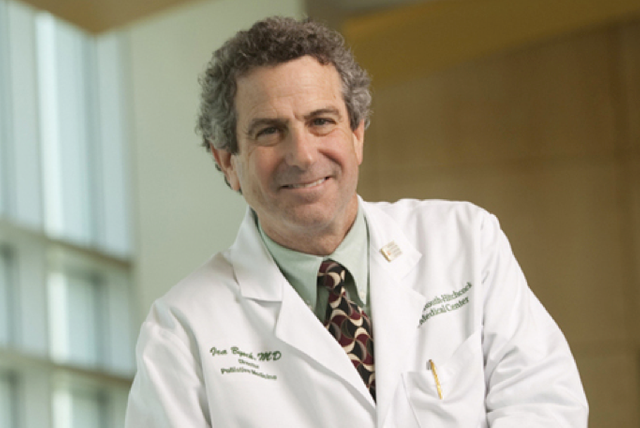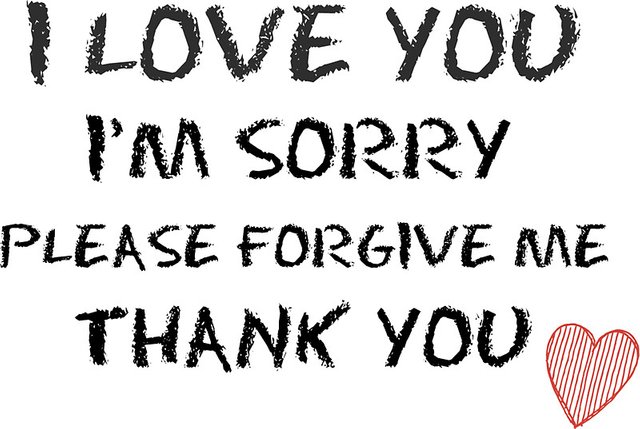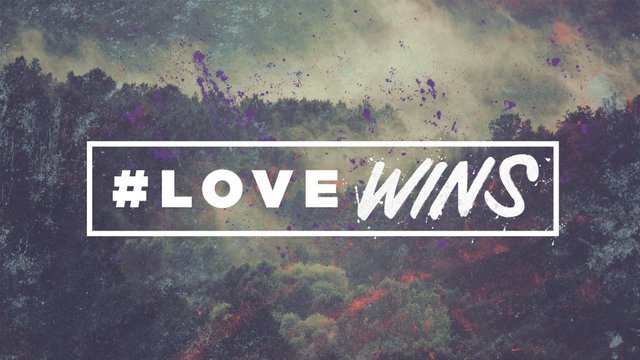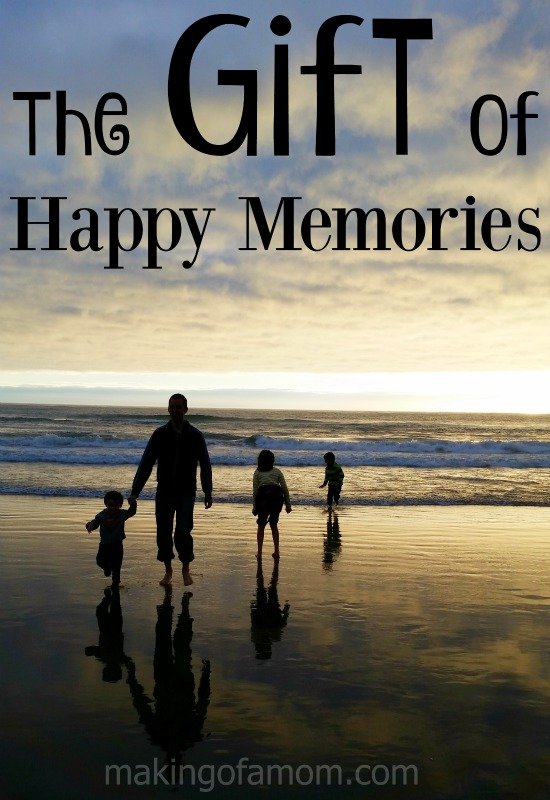🐘 Pallative care physician Ira Byock suggests how we might fill a loved one's final days with joy and forgiveness.
The Ultimate Gift " DR. Ira Byock Personal Stories
DR. Ira Byock

image source: https://around.uoregon.edu
My father, Seymour was diagnosed with incurable pancreatic cancer in 1980, while I was in my medical residency training to be a family doctor. I had been taught to see illness through the lens of medicine. Cancer, dementia and heart, kindney, liver and lung failure were all problems to be solved. Death was the enemy to be fought at all costs.
Dads diagnosis shook me. My mother, my sister Molly and I were sad and worried and did everything we could to bolster his strength and spirits. The months during which he fought and gradually succumbed to cancer were awful. But it would be wrong to say that those months were play awful. Women within the fabric of our experienced of his illness were gifts I treasure to this day.
Dad was able to meet his first grandchild, ,y eldest daughter, Lila. His condition pushed us to talk about the events, places and people of our shared past and express our hopes for the future. We apologized for past angers, disappointments and misdeeds. We asked for and were granted forgiveness. We celebrated our family and our lives, and all of us grew individually and together.
As a young physician in practice. I began wondering whether seriously ill patients and families might have meaningful to them during this difficult time. My dad's illness and death deepened my interest in and commitment to answering this question: It is possible for people to die well-that is to experience a sense of well-being despite knowing death was near?
Today after 4 decades of being a doctor, my answer is emphatically yes. I've worked with people who were gravely ill physically yet emotionally, socially and spiritually well. Here are some of the life lessons I've learned from them.
It's Never Too Late To Forgive
I met Steve, a quintessential Montana cowboy in his 60's, when he became a hospice patient of mine. Years of heavy smoking had ravaged his lungs and years of saying little or nothing had ravaged his relationship with his wife, Dot and their adult children. I visited Steve and Dot at their home to see if I could ease the shortness of breath and constant anxiety that were making his life miserable.
Steve wasn't perfect; no human being is. Even in the closest families and best friendships, missteps and misunderstandings-and sometimes real transgressions-can happen. From my father and many patients and families in my practice, I'd learned something that I thought might help Steve now that there is value in making four statement before you say goodbye: Please Forgive me. I forgive you. Thank you. I love you.

image source: https://ih0.redbubble.net
After taking Steve history and examining him, I prescribed medications and adjusted his oxygen tank. And then suggested that he consider saying those four things to the people he cared about most. He nodded in agreement and said, "Write those down for me, would ya, Doc?" I printed the four sentences on a 3x5 card and handed it to him.
When I visited the couple again 5 days later, their moods had lifted. Dot couldn't keep from chuckling as she described the past Sunday's dinner at their home. Steve had pulled out the card and read the statements I'd written to their assembled children and grandchildren. Steve's delivery was a bit stiff, she said, but everyone around the table knew that he meant what he said. The act not only relived much of Steve's anxiety but also lessened long-standing tensions within their family. After Steve died, one pf their daughters told me that those final months had been the marmest, most loving family time she could recall.
Whatever words people use to convey these sentiments, asking for and offering forgiveness is a way of healing or strengthening our most important relationships.
Love Wins

image source: https://beltway.org/students
One day, I was sitting with my patient Harry, who had been hospitalized for weeks, and were having a frank conversation about his condition. Despite multiple surgeries and intensive therapies, his cancer had spread and it seemed clear he would die within a week or two. I promised that our palliative care team would make sure he was as comfortable as possible during the days that remained. I then asked Harry if there was anything in his life that he felt was left undone.
"I have to marry Dianne!" he exclaimed. I'd known Harry for several months, but I never met Diane. She lived an hour away and was able to visit him only occasionally. He explained that they had been sweethearts for many years but, because of work and financial strains, had never combined their households. After Diane Enthusiastically accepted Harry's proposal, our team worked with the hospital's nurses and spiritual care department to arrange for a wedding in Harry's room 3 days later. A chaplain performed the ceremony while a group of nurses and medical students witnessed the union. Harry beamed as he gave Diane a bridal bouquet of flowers and expressed his love for her.
I've known many couples who married or renewed their vows while one of them was dying. Similarly, When illness is setting the pace and time is fleeting, many children of dying parents hastily rearrange wedding dates and plans. I've marveled at more than a few dying fathers who somehow mustered the strength to walk their daughters down the aisle.
These rituals strike me as healthy defiance. They are ways for spouses, parents and children to emphatically declare that even death cannot diminish love for one another.
Memories Are a Gift

image source: https://makingofamom.com
Visiting a dying relative or friend can evoke concerns about the "right" to say or do. Consider asking the person to tell you a story from his or her earlier life, whether or not it's one you've heard. Recalling a special times together or flipping through photo albums often sparks the retelling of old anecdotes with rich new details. If the person will allow it, think about recording the spoken memory on your phone or other device.
I often counsel patients to think of their stories as gems that will be handed down in their family for generations to come. "What a gift it would be for a children and grandchildren-and their children-to hear your stories in your voice!" I tell them. I've observed frail people's sense of dignity and self worth soar in sharing their memories and having them lovingly received.
I didn't learn this therapeutic technique in medical school but rather from my mother. In 1974, my mom, Ruth, interviewed her mother, Leah, about what it was like to come to America from Russia as a 12-year old girl. Grandma Leah spoke about crossing the Atlantic in steerage class and described her early years in Newark, NJ, before she met and married my grandfather. The cassette tape of the interview has been copied , converted to MP3 format and shared within our family, including with the great-grandchildren's born long after Leah's death. My grandparents are gone, but the stories my mother captured that day are priceless and enduring.
Gratitude Remains

image source: https://montereybayholistic.files.wordpress.com>
During the last weeks of his life, in one of our final e-mail exchanges, my good friend and colleague Peter wrote, "The shocked of knowing I'll die has passed, and the sorrow of it comes only at moments. Mostly, deep underneath, there is quiet, joyous anticipation and curiosity ; gratitude for the days that remain; love all around. I am fortunate."
Gratitude is a common refrain expressed by people who are aware that their lives are fleeting. The preciousness of life often seems more appreciated as death approaches.
For a 2015 museum exhibit and book, Right, Before I die, artist Andrew George spent more than a year interviewing and photographing people who knew they were in the last months of their lives. The most striking sentiments shared by the interviewers revolved around profound gratitude for the people they'd loved and for life itself. A few examples:
EDDICA 44 WITH CANCER
"I love to open my eyes in the morning and hear all these birds by my window. There are so many, singing. That's the meaning of life for me-and feeling the sun on my skin."
JOE 91 LIVING WITH COMPLICATION OF DIABETES
"I feel like I am the luckiest man in the world. I have a wonderful wife, son and daughter, grandchildren and great-grandchildren. No one can ask for more tan that."
MICHAEL 72 WITH END-STAGE LIVER FAILURE
"I am a content , whole peaceful man right now... not scared, not afraid, just excited, all bubbly inside, like I'm going to get married. I'm reaping what I've sowed all those years; I've sowed love."
These Themes are echoed in the reflections of the famous neurologist Oliver Sacks. After receiving news that his cancer had become widespread and was incurable, he wrote in the New York Times, "Above all, I have been a sentient being, a thinking animal, on this beautiful planet and that in itself has been an enormous privilege and adventure."
Dying is often difficult and frequently tragic. Yet within the depth and breadth of human experience may lie surprising opportunities. The insights of people who have gone before us suggest that love and gratitude are the hallmarks of well-being at any stage of life, including the final one.

@steem-untalented
@originalworks